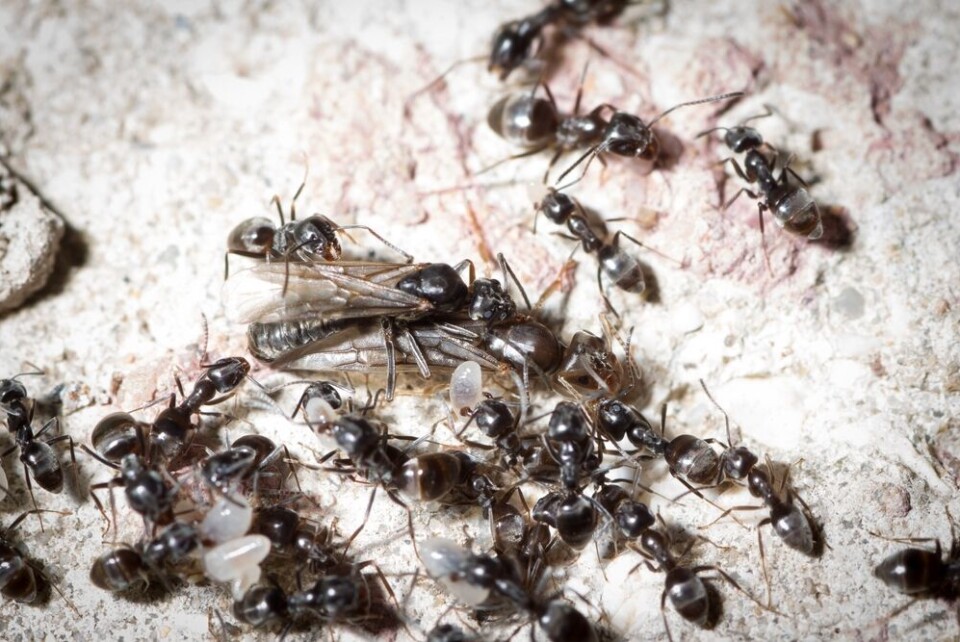-
Dordogne and Corrèze on alert for flooding on Easter Sunday and Monday
Persistent rain and thunderstorms have caused rivers to swell
-
Roadside noise cameras await approval to start issuing fines for loud vehicles in France
The devices known as meduses already exist in several cities but so far have only been ‘instructional’
-
White storks make strong return in France via nest ‘platforms’ and clipped wings
The Ligue pour la Protection des Oiseaux shares the conservation challenges in saving these birds from extinction
Giant 800-metre ant colony beneath beach in the south of France
‘Hundreds of millions of ants’ have been building a megacolony below the sand dunes

A huge colony of ants has invaded a beach on the Mediterranean coast, with ecologists warning they could pose a threat to the local ecosystem.
The ants belong to the ‘tapinoma’ genus, and although measuring less than 5mm in length, have built an 800-metre long ‘super colony’ burrowed in the beach’s sand dunes.
Researchers are taking a keen interest in the colonisation of the beach at Carnon, Hérault, and believe a staggering number of the insects inhabit the beach.
“We estimate that there are at least a few hundred million ants in this colony,” said Luc Gomel, an ant specialist and researcher at Paul Valéry University.
Usually, ant colonies on beaches only contain a few thousand members, making this one of the largest colonies by the seaside.
Damage to local ecosystems
Scientists are also tracking how the ants interact with other colonies.
Originally from the Mediterranean basin and North Africa, the ant species in question – which usually prefers temperate climates – have been spotted as far north as Strasbourg, Lyon, and Bordeaux.
It is believed climate change may be influencing the rapid spread of the species, as they are more adept at surviving further north than ever before.
The ants are aggressive expanders, and with their extreme numbers, could wipe out nearby ant colonies.
“These ants have such a swarming mass, such an overpopulation, that they are supplanting all the other ant species with which they may be competing,” said Mr Gomel.
“They can have an impact on other insect species that they seek to attack and consume. Through a domino effect, they may also have an impact on certain plants,” he added.
For now, researchers are unsure whether the species arrived at the beach by accident or if they are a native species that have managed to expand massively by chance.
They are currently analysing the ants’ genetic profile to see where their origins lie, before deciding how to deal with the colony.
If they are an invasive species that have appeared on the beach from abroad, the ants will be the most recent in a list of growing invasive species impacting France’s ecosystems.
Read also: How can France fight invasive species like Asian hornets?
No danger to beachgoers
The beach is still completely safe and open to visitors. The ants are not venomous to humans and being such a small size are practically invisible on a sunny day.
Furthermore, the colony is underground and the ants rarely poke their heads above the surface.
They are, however, attracted by sugar so make sure you keep your food well-wrapped if you are planning a visit.
Related articles
Call for state action over growing issue of tiger mosquitoes in France
‘Electric’ sting fire ants found in France for first time
























